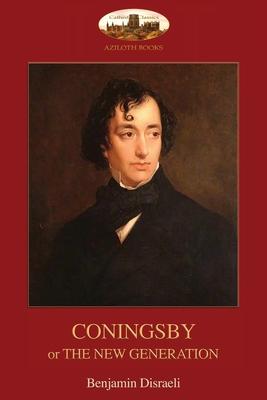Coningsby is the first of Disraeli's trilogy of political novels set against a background of real events in England following the enactment of the Whigs' Reform Bill in 1832.
The story follows the fortunes of Harry Coningsby - the orphaned grandson of the Marquis of Monmouth - from a boy at Eton to a young man of twenty-two. The luxurious life of the aristocracy, with their balls and lavish entertainments, is part of Coningsby's heritage but he is a serious and thoughtful hero, the accepted leader of the "New Generation" who, unlike their more laissez-faire elders, recognise the need for social and political change in a newly industrialised nation.
Disenchanted with both Whigs and Tories, Coningsby sets out to forge a new political force, one that aims to reinvigorate Britain's three great institutions - the monarchy, the Church and the people. The author's voice rings loud and clear here and also through his other central character, Sidonia, a wealthy and highly accomplished Jew who is both a man of the world and a man of no nation, a position that gives him unique insights into human nature and politics. If Coningsby wants change, advises Sidonia, then he should revive the national spirit and aim to inspire: "To believe in the heroic makes heroes." Bold as he is, the path is a thorny one for Coningsby, especially when he falls in love with a beautiful woman from the "new money" class.
Disraeli's solutions for inept political systems may belong to another era but his insightfully drawn characters - the self-serving fixer, the bloated elitist, the clever manipulator of events and public opinion - live on today and will ever endure. In that sense, Coningsby is timeless.
